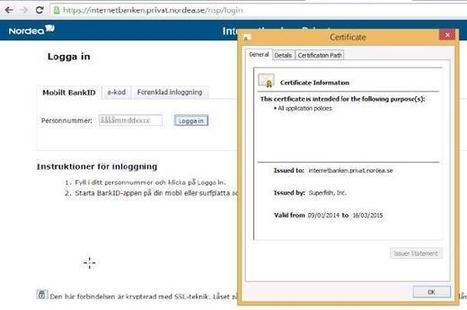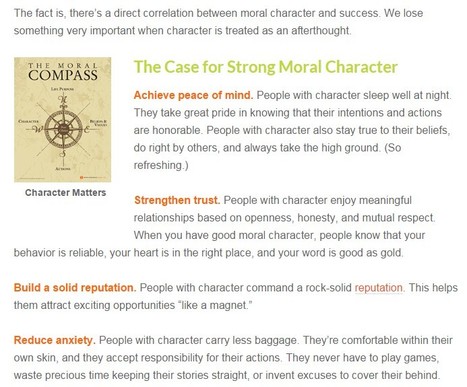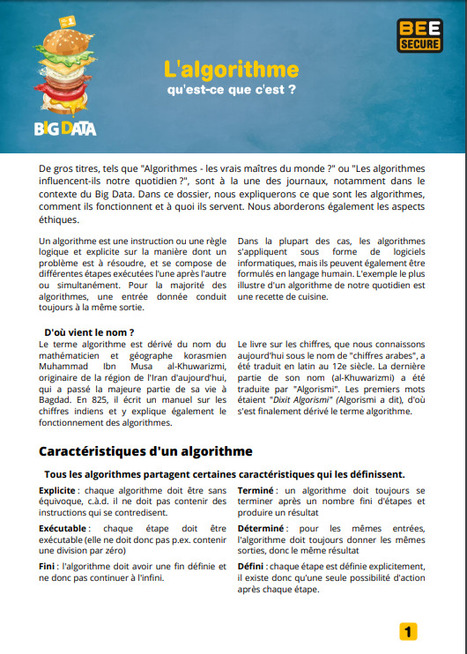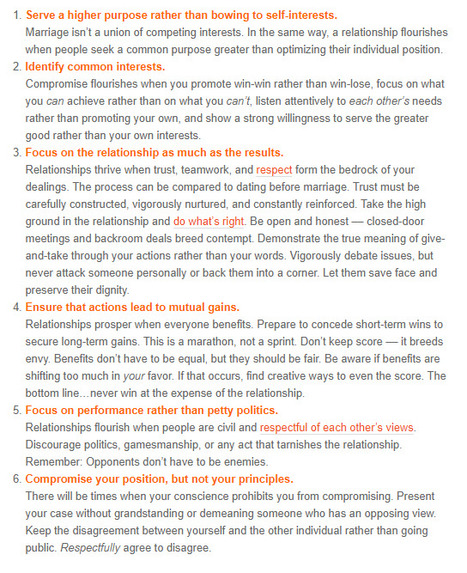 Your new post is loading...
 Your new post is loading...

|
Scooped by
Gust MEES
|
As you might expect, Brin expects Alphabet and others to find more uses for AI. But he also acknowledges that the technology brings possible downsides. “Such powerful tools also bring with them new questions and responsibilities,” he writes.
AI tools might change the nature and number of jobs, or be used to manipulate people, Brin says—a line that may prompt readers to think of concerns around political manipulation on Facebook. Safety worries range from “fears of sci-fi style sentience to the more near-term questions such as validating the performance of self-driving cars,” Brin writes.
All that might sound like a lot for Google and the tech industry to contemplate while also working at full speed to squeeze profits from new AI technology. Even some Google employees aren’t sure the company is on the right track—thousands signed a letter protesting the company’s contract with the Pentagon to apply machine learning to video from drones. Learn more / En savoir plus / Mehr erfahren: https://www.scoop.it/t/21st-century-learning-and-teaching/?&tag=AI https://www.scoop.it/t/21st-century-learning-and-teaching/?&tag=Ethics

|
Scooped by
Gust MEES
|
Preparing a child for the world that doesn’t yet exist is not an easy task for any teacher. Step back and look at that picture from a broad perspective. What are the critical 21st-century skills every learner needs to survive and succeed in our world? What abilities and traits will serve them in a time that’s changing and developing so rapidly?
They want to be challenged and inspired in their learning. They want to collaborate and work with their peers. They want to incorporate the technology they love into their classroom experiences as much as they can. In short, they have just as high a set of expectations of their educators as their educators have of them.
How Are Educators Responding?
The Australian Curriculum Assessment and Reporting Authority, (ACARA), have identified the following as the General Capabilities they see as essential for learners:
Critical and creative thinking
Personal and social capability
Ethical understanding
Intercultural understanding
Information and communication technology capability
Literacy
Numeracy
Learn more / En savoir plus / Mehr erfahren. http://www.scoop.it/t/21st-century-learning-and-teaching/?&tag=modern-education

|
Scooped by
Gust MEES
|
The time has come for the media to review their current practices and demand utmost integrity from themselves and their people. I long for a day when the news media awaken to their conscience and accept responsibility as gatekeepers of the truth. It’s time for them to understand the vital role they play and to ensure that every member lives according to the highest standards of honor and integrity. The late Edward R. Murrow, one of journalism’s great figures, said, “To be credible we must be truthful.” The media have a moral duty and an obligation to live by that principle. Truth is not an option. It’s a necessity! Learn more / En savoir plus / Mehr erfahren: http://www.scoop.it/t/21st-century-learning-and-teaching?tag=Critical-Thinking http://www.scoop.it/t/21st-century-learning-and-teaching/?q=ethics

|
Scooped by
Gust MEES
|

|
Scooped by
Gust MEES
|
Heuchelei ( Hypokrisie) bezeichnet ein moralisch bzw. ethisch negativ besetztes Verhalten, bei dem eine Person nach außen hin ein Bild von sich vermittelt, das nicht ihrem realen Selbst entspricht. Das zugrundeliegende Zeitwort heucheln stammt ursprünglich vom unterwürfigen ducken und kriechen (mittelhochdeutsch hüchen) des Hundes ab und wurde auf vorgespieltes, schmeichelndes Verhalten übertragen.

|
Scooped by
Gust MEES
|
It looks like Lenovo has been installing adware onto new consumer computers from the company that activates when taken out of the box for the first time.
The adware, named Superfish, is reportedly installed on a number of Lenovo’s consumer laptops out of the box. The software injects third-party ads on Google searches and websites without the user’s permission.

|
Scooped by
Gust MEES
|

|
Scooped by
Gust MEES
|

|
Scooped by
Gust MEES
|
EPIC contends that Facebook 'purposefully messed with people's minds' when it manipulated their news feeds to measure emotional responses.
The Electronic Privacy Information Center filed the complaint Thursday, asking the FTC to impose sanctions on Facebook. The study violated terms of a 20-year consent decree that requires the social-networking company must protect its users’ privacy, EPIC said. EPIC also wants Facebook to be forced to disclose the algorithms it uses to determine what appears in users’ news feeds.

|
Scooped by
Gust MEES
|

|
Scooped by
Gust MEES
|

|
Scooped by
Gust MEES
|

|
Scooped by
Gust MEES
|
The tactics are different from those used for encouraging achievement.
|

|
Scooped by
Gust MEES
|
De gros titres, tels que "Algorithmes - les vrais maîtres du monde ?" ou "Les algorithmes influencent-ils notre quotidien ?", sont à la une des journaux, notamment dans le contexte du Big Data. Dans ce dossier, nous expliquerons ce que sont les algorithmes, comment ils fonctionnent et à quoi ils servent. Nous aborderons également les aspects éthiques.
Un algorithme est une instruction ou une règle logique et explicite sur la manière dont un problème est à résoudre, et se compose de différentes étapes exécutées l'une après l'autre ou simultanément. Pour la majorité des algorithmes, une entrée donnée conduit toujours à la même sortie. Dans la plupart des cas, les algorithmes s'appliquent sous forme de logiciels informatiques, mais ils peuvent également être formulés en langage humain. L'exemple le plus illustre d'un algorithme de notre quotidien est une recette de cuisine.
D'où vient le nom ?
Le terme algorithme est dérivé du nom du mathématicien et géographe korasmien Muhammad Ibn Musa al-Khuwarizmi, originaire de la région de l'Iran d'aujourd'hui, qui a passé la majeure partie de sa vie à Bagdad. En 825, il écrit un manuel sur les chiffres indiens et y explique également le fonctionnement des algorithmes. Le livre sur les chiffres, que nous connaissons aujourd'hui sous le nom de "chiffres arabes", a été traduit en latin au 12e siècle. La dernière partie de son nom (al-Khuwarizmi) a été traduite par "Algorismi". Les premiers mots étaient "Dixit Algorismi" (Algorismi a dit), d'où s'est finalement dérivé le terme algorithme.
Learn more / En savoir plus / Mehr erfahren: https://www.scoop.it/t/21st-century-learning-and-teaching/?&tag=Algorithm https://www.scoop.it/t/21st-century-learning-and-teaching/?&tag=Big+Data...

|
Scooped by
Gust MEES
|
If you define winning as getting the upper hand, backing your opponent into a corner, and winning at any expense, you’ve got it all wrong. You may win in the short term, but think about the relationship going forward. Do those actions build trust, teamwork, and respect? I think not. You’ve probably created enough animosity, distrust, and jealousy to last a lifetime. In other words, you may have won the battle, but lost the war. There’s a better way…winning doesn’t have to be at someone’s expense.
Compromise: A Win-Win Strategy
Some people need to win at all costs because their ego won’t accept anything less. They’d rather win personally than accomplish something meaningful. Compromise isn’t a synonym for surrender; it’s a winning battle plan. Learn more / En savoir plus / Mehr erfahren: http://www.scoop.it/t/21st-century-learning-and-teaching/?&tag=Win-Win-Situation http://www.scoop.it/t/21st-century-learning-and-teaching/?&tag=Frank+SONNENBERG

|
Scooped by
Gust MEES
|
Thomas Metzinger is a philosopher at the Johannes Gutenberg University in Mainz, Germany, who specialises in the philosophy of mind and neuroscience. He is co-author, with Michael Madary, of a paper calling for a code of conduct for virtual reality.
Why do we need an ethical code of conduct for virtual reality?
Virtual reality headsets like Oculus Rift and HTC Vive will hit the consumer market this year and suddenly millions of people will be using them. VR can induce strong illusions of embodiment, where you feel as if you own and control another body. We do not know what the psychological consequences will be.
What are the risks?
There may be a risk of depersonalisation, where after an extended immersion in a virtual environment, your physical body may seem unreal to you. Fully immersive experiences have a bigger and more lasting impact on people’s behaviour and psychology. We know from the rubber hand illusion that our brains can be fooled into thinking that an inanimate rubber hand is our own. In VR environments, we can be fooled into thinking that we are our avatars.Consumers must understand that not all of the risks are known in advance. There may be a tiny percentage of the population that has a certain psychiatric vulnerability such that binging on VR may result in a prolonged psychotic episode. One can only speculate. Learn more / En savoir plus / Mehr erfahren: http://www.scoop.it/t/21st-century-learning-and-teaching/?tag=Virtual+Reality http://www.scoop.it/t/21st-century-learning-and-teaching/?tag=Ethics

|
Scooped by
Gust MEES
|
Do you think that robots with artificial intelligence could ultimately provide the expertise and multiple intelligences that we need from human experts?
It’s already clear that artificial intelligence can provide information that we used to secure from experts or that we had to look up ourselves. Just think about Siri, Encore, and the power of many other search engines. There is every reason to believe that these systems will continue to get ‘more intelligent’. As I am writing, the best “go” player in the world is struggling to compete successfully with a newly developed computational system.
I think we need to separate three issues. Firstly does the system reach its ‘answers’ in the same way that human beings do? This is the difference between ‘artificial intelligence’ and ‘human simulation. Secondly does the system manifest its intelligence? For many of us, there’s a big difference between typing a question on our pad, as opposed to conversing with a robot or avatar. The more that the robot resembles a human being, the more satisfying it will be to many individuals, although not to me! Thirdly can the computational system provide a recommended course of action that is as solid, or even more solid, than a well-trained professional? In a way that the client finds satisfying? For the foreseeable future (say a decade or two), I think that the answer is no. But I would add that for individuals who cannot afford to consult a professional, or for whom no professional is available, an artificial system will typically be much better than the recommendations of a friend or than common sense – which is all too often common non-sense. Learn more / En savoir plus / Mehr erfahren: http://www.scoop.it/t/21st-century-learning-and-teaching/?tag=Howard+GARDNER http://www.scoop.it/t/21st-century-learning-and-teaching/?tag=Ethics

|
Scooped by
Gust MEES
|

|
Scooped by
Gust MEES
|
I watch the killing that’s taking place around the world and ask myself why?
How can someone be so intolerant that they can kill another person over their beliefs? How can someone be so angry that they’re willing to take the life of an innocent child to advance a cause? How can someone be so confused that they refuse to honor and value a life?
There’s no simple answer to the horrific crisis that we face, but I’m convinced that a contributing factor is the poisoning of our minds. We are bombarded with hatred, intolerance, and violence every day. The entertainment industry incorporates hate, intolerance, and violence into movies, music, comedy routines, and video games in order to increase sales.
The news media hypes violence to boost television ratings. Politicians appeal to our dark side to win votes. These acts are desensitizing our personal values, polluting our minds, and corroding our culture.
While violent and hateful stimulation do not affect everyone, repetitive, negative stimulation may confuse an already deranged mind and cause that mind to snap — just as steel may break if bombarded continually at its weakest spot.
Learn more:
- http://www.scoop.it/t/21st-century-learning-and-teaching?q=values

|
Scooped by
Gust MEES
|
Promise to Tell the Whole Truth
A promise is a promise. Some folks apply a rating scale, believing that breaking a big promise is inexcusable, while a small one is acceptable. That’s simply false. While breaking a big promise, such as failing to repay borrowed money, can torpedo a relationship, reneging on promises, such as being on time, casts doubt on future behavior.
Remember, trust is built through a series of experiences shared with others. When behavior is consistent, faith in the relationship develops. When promises are broken or people are misled, the bonds of trust are breached.
Broken promises imply that the offenders either didn’t think before making the promises, or don’t care that they’ve let you down. They’re also implying that their needs are more important than yours. So, be careful about the promises that you make and with whom you make them.

|
Scooped by
Gust MEES
|
Integrity is a concept of consistency of actions, values, methods, measures, principles, expectations, and outcomes. Barbara Killinger offers a traditional definition: Integrity is a personal choice, an uncompromising and predictably consistent commitment to honour moral, ethical, spiritual and artistic values and principles.

|
Scooped by
Gust MEES
|

|
Scooped by
Gust MEES
|

|
Scooped by
Gust MEES
|

|
Scooped by
Gust MEES
|
|



 Your new post is loading...
Your new post is loading...





































As you might expect, Brin expects Alphabet and others to find more uses for AI. But he also acknowledges that the technology brings possible downsides. “Such powerful tools also bring with them new questions and responsibilities,” he writes.
AI tools might change the nature and number of jobs, or be used to manipulate people, Brin says—a line that may prompt readers to think of concerns around political manipulation on Facebook. Safety worries range from “fears of sci-fi style sentience to the more near-term questions such as validating the performance of self-driving cars,” Brin writes.
All that might sound like a lot for Google and the tech industry to contemplate while also working at full speed to squeeze profits from new AI technology. Even some Google employees aren’t sure the company is on the right track—thousands signed a letter protesting the company’s contract with the Pentagon to apply machine learning to video from drones.
Learn more / En savoir plus / Mehr erfahren:
https://www.scoop.it/t/21st-century-learning-and-teaching/?&tag=AI
https://www.scoop.it/t/21st-century-learning-and-teaching/?&tag=Ethics